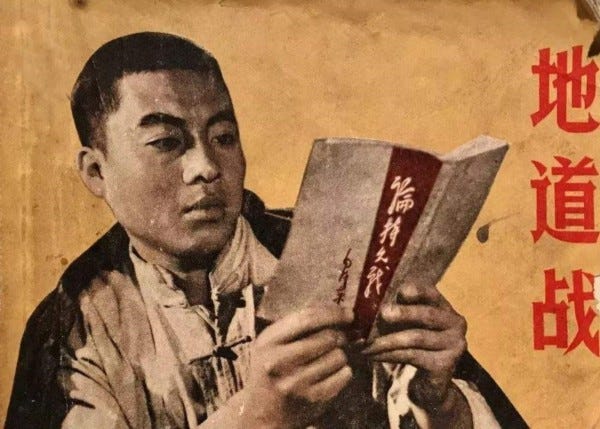Preparing for protracted war
Beijing is ready for a long trade war, May travel boom, Xi❤️AI, delivery app wars, dueling flags in the South China Sea, transnational repression, China jobs, Chinese views on Americans and Indians.
This is The China Week, a succinct roundup and analysis of what happened in the People’s Republic in the last seven days. I have put the paywall up today, although you’ll still get the top story for free. Please subscribe here if this was forwarded to you, or give a subscription as a gift. I love feedback: email jeremy@goldkorn.net.
—Jeremy Goldkorn
The trade war
Beijing is digging in for a long struggle

Donald Trump gave a rambling interview to Time magazine last week; he claimed that Xi Jinping had phoned him, but that he would not be willing to initiate a call himself. On April 28, a foreign ministry spokesperson denied it, saying “As far as I know, there have not been any calls between the two presidents recently. Let me make it clear one more time that China and the U.S. are not engaged in any consultation or negotiation on tariffs.”
And although there have been reports that China will exempt some semiconductors, aviation equipment, chemical products, and drugs from its retaliatory tariffs, there has been no formal announcement. Any exemptions that might get made will be to ensure access to products needed by Chinese companies, not as an offering to Trump.
In fact, as I suggested in last week’s newsletter, Beijing seems to be digging in for the long trade war. An April 25 Politburo meeting called for the “coordination of domestic economic work and international economic and trade struggles,” (统筹国内经济工作和国际经贸斗争). One widely-circulated article on the meeting explained that “in the political context of China, the word ‘struggle’ often means that it is necessary to compete in a wider range of fields and for a longer.”
On April 28, the Beijing Daily, a newspaper controlled by the Beijing branch of the Communist Party, published an editorial titled “Today, it is necessary to remember clearly On Protracted War 论持久战, a series of speeches about the anti-Japanese war written by Mao Zedong in his cave in the Communist Party’s revolutionary base in Yan’an and delivered in late May and early June, 1938. (It took another seven long years for the Japanese to surrender, followed by four more years for the Communist Party to win the civil war gain control over the country.)
Beijing’s messaging on the trade war is quite consistent: “The Chinese people’s rice bowl is firmly held in their own hands,” said Zhao Chenxin 赵辰昕, deputy head of the National Development and Reform Commission, at a press conference on April 28, stating that China is able to feed itself and ensure a stable energy supply, even without any U.S.-made goods.
China is already hurting: Caixin magazine says “China’s export machine” is stalling, and there are plenty of reports and anecdotal evidence that some pain has already begun. But unless Trump completely reverses course on tariffs, we can expect the trade war to go on for a long time.
Japan, Korea, and the European Union push back
“Japan intends to push back against any U.S. effort to bring it into an economic bloc aligned against China because of the importance of Tokyo’s trade ties with Beijing,” current and former officials cited by Bloomberg said. And there seem to be renewed efforts to revive free trade deal negotiations between China, Japan, and South Korea.
Meanwhile, “Japanese negotiators are complaining that the problem with the trade negotiations with the White House, what's delaying concrete progress and a real deal, is that [the] U.S. keeps changing its ask in terms of exactly what it wants,” according to a tweet by Fox business reporter Charles Gasparino.
Senior Advisor at Rhodium Group and Visiting Senior Fellow at the German Marshall Fund Noah Barkin writes:
I understand from multiple sources that China is preparing to lift its sanctions on members of the European Parliament (MEPs) as early as next week. The sanctions were introduced in March 2021 in response to the EU’s decision to impose sanctions on Chinese entities for human rights violations in Xinjiang. The exchange of sanctions led to the collapse of the EU-China Comprehensive Agreement on Investment (CAI) that had been agreed months before.
Officials tell me that China hopes the removal of sanctions will lead to a revival of the CAI, sending a powerful signal about EU-China cooperation at a time when Beijing and Brussels are under intense pressure from a global trade war launched by President Donald Trump.


